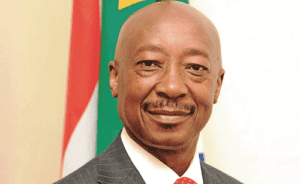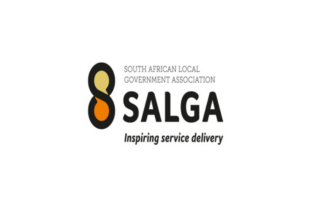Commissioner of SARS Tom Moyane says an increased effort to improve both hard and soft infrastructure is necessary to unlock the potential of trade and boost South Africa’s competitiveness.
The measures needed to be taken in soft infrastructure include simplifying and harmonising customs and border procedures, encouraging the use of new technology by customs and clearing agents, and eliminating corruption by customs officials. Implementation of brand-new customs legislation – the Customs Control Act, Customs Duty Act, and Customs and Excise Amendment Act – will have a massive impact on all SARS stakeholders. The existing Customs and Excise Act is to be renamed the Excise Duty Act, and will be implemented on a date yet to be determined by President Jacob Zuma. The impact of this new legislation, its incorporation into current automated systems, policies and procedures, as well as readjustments that are needed to be made by every entity engaging in business with SARS are not small fixes to implement. New systems, policies, and procedures are being developed in phases; the first of which relates to registrations and licencing, the second to goods reporting, and the third to declaration processing. They have been designed to facilitate trade and investment, not hamper it. Acting up All stakeholders need to work together to combat illicit trade. The new acts will bring a range of benefits, including greater transparency. They will enhance the predictability of doing business, promote exports, augment business competitiveness, and stimulate domestic activity. They will also promote an environment for SMMEs to flourish, ultimately making South Africa more globally competitive. The biggest concern of SARS clients is border post delays. Many issues have been addressed through a modernisation programme over the last few years. Automated processes, electronic declaration, and mobile inspections have simplified procedures and reduced paper usage.Administrative burdens have been reduced, as supporting documents are no longer required, unless requested. Customs receives advanced information about consignments from traders and can assess the risk in advance, using third-party data verification tools.
Customs is busy working on the single-window concept, which was born out of the fact that traditional import/exports and rated regulatory requirements have created a grey area for the market entry of international goods. One-stop border post arrangements, which reduce the compliance burden on taxpayers, traders, and travellers at South Africa’s ports of entry, have been adopted. SARS is working with the Department of Home Affairs on the formation of the Border Management Agency (BMA), as a means to secure the borders of the republic, ensure enhanced border management, and support effective delivery on the mandates of all relevant organs of state. Cabinet has approved the introduction of the BMA Bill in Parliament and is currently following the normal parliamentary processes before its approval. The establishment of the BMA is a process, not an event. Smoke signals South Africa is not immune to illicit trade, in its various forms. Illicit traders have exploited legitimate trade channels. This is a threat to legitimate business and financial activity, undermines economic growth, and attacks the revenue base. The sale of contraband cigarettes, drug abuse, and illegal immigration affect national security, the well-being of South African citizens, and the formal tax base. SARS is developing aggressive strategies to combat this; operational and internal probabilities have been put in place to disrupt, mitigate, and arrest the individuals, syndicates, and companies involved. SARS has introduced new integrated border management tools, such as cargo scanners in the Durban and Cape Town ports, increased its inspection capabilities, and is pursuing a common customs working philosophy across Africa.






